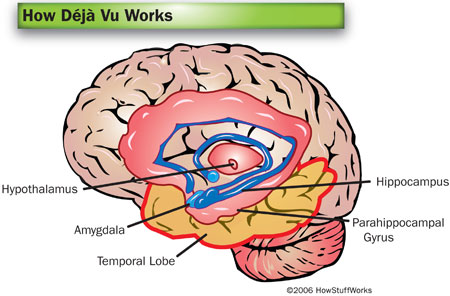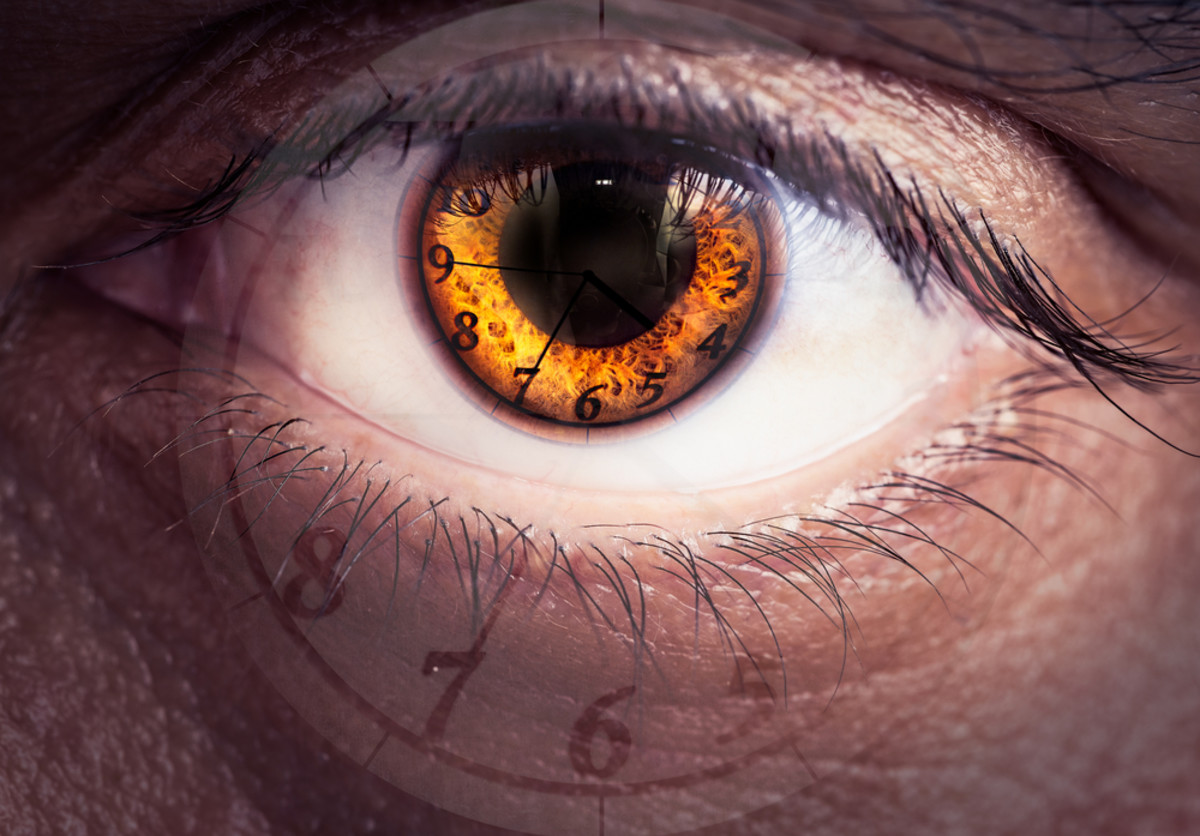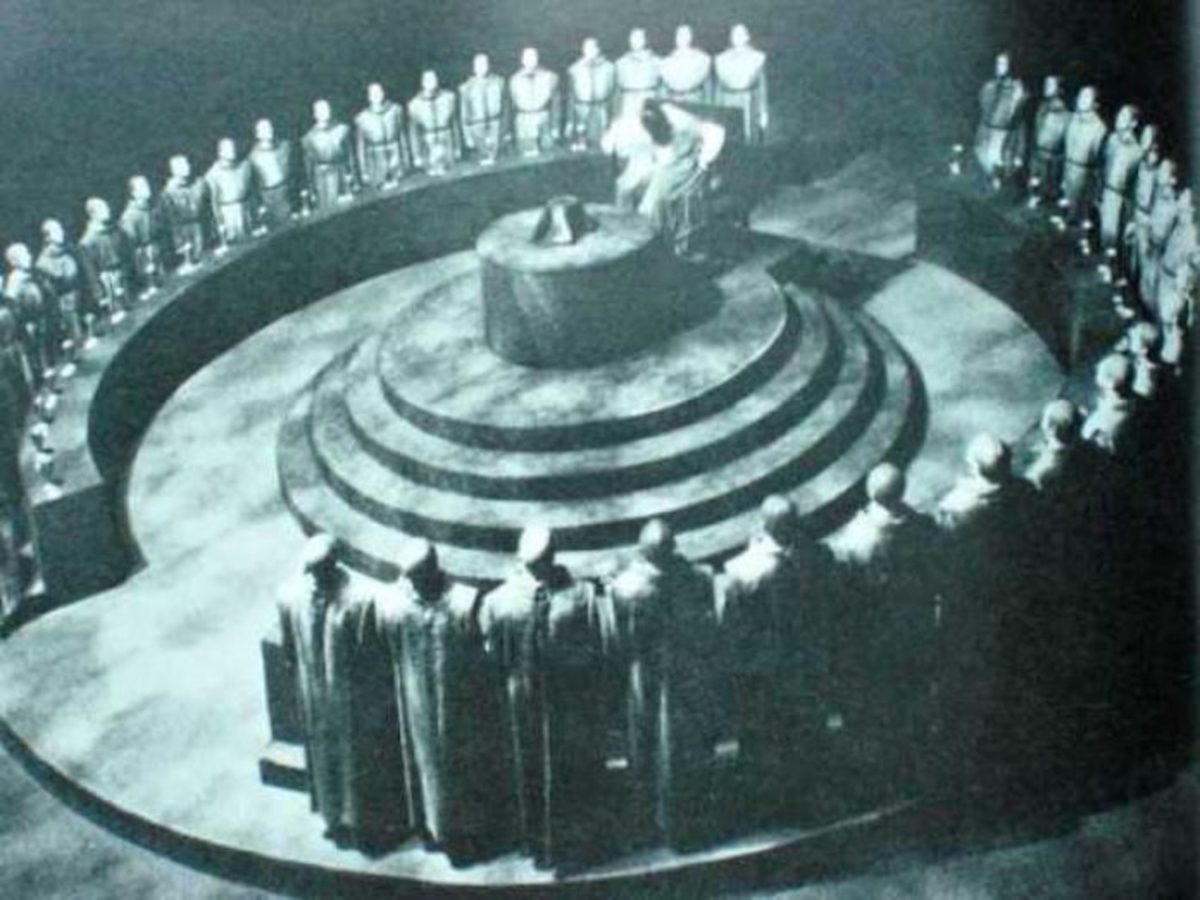Deja vu and its significance

Déjà vu is a French term, which means literally “already seen”. It is a phenomenon of having a strong sensation that an event or experience, which an individual is experiencing currently, has been experienced by the individual in the past, whether it has actually happened or not. Those, who have experienced it, describe it as an overwhelming sense of familiarity with something that should not be familiar at all.
It is reported that about 70 percent of the population has experienced some form of Déjà vu. A higher number of incidents occur in people 15 to 25 years old than in any other age group.

Some important theories of Déjà vu –
Below are enumerated some of the important theories -
- The scientific explanation says that Déjà vu is related to memory processes. Short term-memory deals in memory of periods of a few minutes. It is mostly based in the hippocampus of the brain. And, therefore, problems with the hippocampus often lead to severe short-term memory problems. It helps us to stay oriented in time. The long-term memory is based in the surface of the brain, along the bottom of the temporal lobes. The area has been called the parahippocampal cortex and its very closely connected to the hippocampus. Ordinarily, there is a fairly flawless integration of the past, present and the future. In simple terms, we experience something in the present, compare it to similar experiences in the past, and decide how we will respond. Sometimes, due the chemical imbalance, the perceptions from the present are directed to the parts of the brain that process memories from the past. These perceptions then feel like memories from the past. The person will feel that he or she is re-living a moment stored in the long term memory. This gives rise to a feeling of Déjà vu.
- There is evidence that Déjà vu can also be triggered by delays in transmission of images through optic nerves. The delays between the images received by one of the eyes can cause brain to experience Déjà vu.
- Another theory postulates that memories are like holograms meaning that a person can recreate the entire three dimensional images from any fragment of the whole. The smaller the fragment, the fuzzier the ultimate picture. Déjà vu happens when some detail in the current environment is similar to some remnant of memory of the past. Our brain then recreates the entire scene from that fragment.
- The psychologist Edward Titchener explained that Déjà vu is caused in an individual when the brain has completed the construction of a full perception of an experience even before the individual has a brief glimpse of the object. Such a partial perception results in a false sense of familiarity.
- Some theories exist as the cause of Déjà vu, which depend on paranormal experiences like past lives, alien abduction and precognitive dreams. But the scientists reject these explanations as the cause of Déjà vu.
- Some quantum physicists support the theory that there is the possibility that déjà vu might be caused by the ability of the person experiencing it to flip between different universes. Dr. Michio Kaku supports this theory. it is theoretically possible to move back and forth between universes. So, although it is uncertain, it could be possible that when individuals are experiencing déjà vu, they are "vibrating in unison" with a parallel universe, explains Dr. Kaku.
Significance of Déjà vu -
The researchers show that younger people with active imaginations are more likely to experience déjà vu. Younger people could experience it more because their brains are more active and they produce more dopamine, which has been linked to déjà vu.
The phenomenon of Déjà vu is difficult to research because there is so little information, evidence or firsthand witnessing. Scientists, philosophers, psychologists and paranormal experts have been grappling with the meaning of déjà vu for more than two centuries with little success. Sigmund Freud believed déjà vu is caused by repressed desires or memories.
Many explanations associate déjà vu with prophecy, past life memories, clairvoyance, or a mystic suggestion indicating fulfillment of a predetermined condition on the journey of life.
Brain imaging technology has placed déjà vu within the study of memory. The researchers from France found that synchronized neural firing between the rhinal cortices and the hippocampus or amygdala was increased in situations that induced déjà vu. This suggests that some sort of coincident occurrence in medial temporal lobe structures may trigger activation of the recollection system.
The cause and precise mechanism of déjà vu remains a mystery. If it happens, nothing is wrong with you. In fact, enjoy the experience and appreciate the strange feeling that washes over you.






